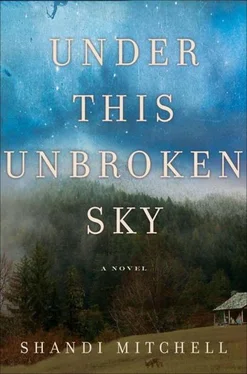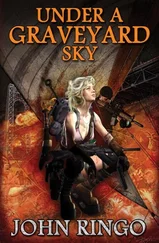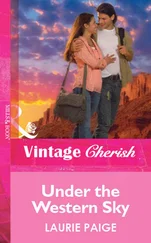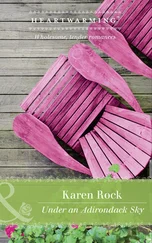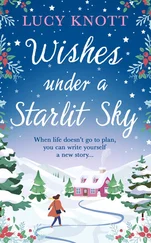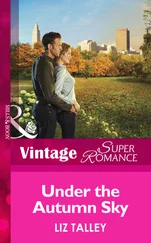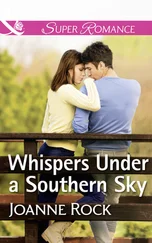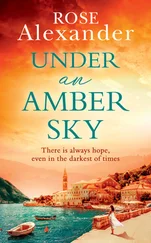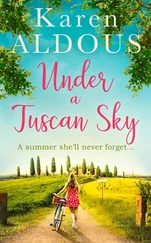“Anna,” Maria says softly. Anna looks to her sister-in-law, suddenly aware of the staring eyes, her soiled nightgown hanging loose around her body, her bare feet rooted to the ground.
“Come help me plant.” Maria slowly rises and approaches her as she would a frightened animal. “I’m planting peas.” She reaches into her apron pocket and extracts a handful of seeds, takes Anna’s hand, and pours them into her open palm. They stand there a moment, searching each other’s eyes. Anna’s fingers curl around the seeds.
“You can take my row,” says Maria and heads back to the garden. Anna follows, kneels down in the dirt, opens her hand, and plants a shriveled pea. All around her the sound of work resumes.
THE FOLLOWING WEEKS ARE A CONSTANT VIGIL FOR THE first green sprouts to poke their heads up. The peas are first, followed shortly by beans, then onions, lettuce, carrots… until the entire black earth is speckled with tender green. Mornings are for watering to fend against the drying sun. Daytime is for weeding and searching for insects hungrily intent on devouring the crop. Everyone participates, checking the rows for caterpillars, potato beetles, cutworms, aphids, spider mites… an endless barrage of invading armies.
Each person has their own killing style. Maria, Dania, and Lesya efficiently remove the offender and crush it between their nails without a second thought. Maria actually finds the sound of the bug’s shell popping somewhat soothing. She starts debugging a row of potatoes, her mind spinning with the day’s chores, but by the time she reaches the end of the row, having killed fifty or sixty bugs, her mind has calmed just to the sound of— pop— .
Sofia can’t bear touching the bugs and makes Katya pull them from the plant. They have a killing block, a small piece of board they put the bug on and stomp. Once, Sofia was in such haste to annihilate a cutworm that she accidentally stomped Katya’s retreating hand. A purple bruise bloomed like a cauliflower. Katya was assigned to another row, and Sofia was forced to pick the bugs from the plant herself.
Ivan and Petro prefer to race. Ivan in lettuce, Petro in cabbage, they count: ready-set-go. The first few games the victor was whoever finished first, but once Maria inspected their rows and found at least twenty bugs in the first ten feet, the rules were changed to the victor being the one who killed the most. The boys gather three or four bugs at a time, then rub their hands together, holding up the smeared remains to each other’s delight. Large bugs, like cutworms, are gathered in jars so the final count can be verified, but also to act as execution chambers.
They experiment with myriad techniques: sometimes drowning, sometimes heat, suffocation, dehydration, dismemberment. The most dangerous method is frying them on the woodstove. The boys are certain the punishment will be severe if Maria discovers what the burned crisps are that she scrubs off the stovetop every night. The best method, by far, is leaving them on Sofia’s side of the bed.
The garden is constantly under attack. The first tender shoots are prone to damping off—a soil infection that will rot the seedlings and decimate the crop.
If the infant plants manage to survive, they still need to overcome early blight, late blight, rust, and downy mildew. Any sign of a fungus is a call to arms. Infected leaves are pulled off, whole plants sacrificed, and their remains cremated in the woodstove. Maria concocts a sulfur mixture and pours the toxic tea over and around the plants.
If the plants survive the blights, they still face late frosts. Maria nervously steps in and out of the shack on the nights the temperature starts to drop. On more than one occasion, she sounds the alarm after the children have climbed into bed. Sofia and Dania follow their mother into the night, illuminated by the kerosene lamp, to cover the plants with burlap. Not until mid-morning, after the sun has warmed the soil, does she gently lift the burlap off, relieved to feel the escaping heat and find the plants still thriving.
There are so many enemies. The birds; the cats that dig at the furrows for a place to shit; their own clumsy feet; and the cow that got loose when Ivan left the barn door open because he said the cow told him it was afraid of the dark and didn’t want to be alone.
Maria prays that there will be no hail, no drought, no frost, no swarming infestations, no floods, no fires, no rogue horses or cows, no birds, no mice, no gophers, and especially no rabbits—she prays every night for the safety of her vegetables. She asks Anna to make a scarecrow.
Anna selects two long spruce poles and uses the ax to sharpen one point into a stake. She lashes them together with binder twine, forming a cross or a man standing with stiff arms outstretched. She wraps the poles with willow, shaping a body, a curved body with breasts and a waist. She puts her ankle-length, hand-woven and elaborately embroidered wedding sorochka on the skeletal frame. She stands back and examines her work. Then she picks up a knife and slashes the skirt and sleeves and is pleased to see the wind grab at the tatters. Maybe Maria should have stopped her, but she knew this was an exorcism.
She had tried to talk to Anna about Stefan. She offered to make her a balm to heal her heart. Anna had laughed, laughed so hard that it frightened Maria. She was relieved when Anna joined them in the garden. Hard work, fresh air, sunlight, and, most important, being surrounded by life would be the best cure for her sister-in-law. Sometimes it is better to forget.
Anna works obsessively, not stopping for water or food, refusing any help. She stuffs the arms with straw, ties strands of one-foot lengths of barbed wire to the hands, and fastens metal jar lids to the barbs. The scarecrow claps cacophonously, tambourines twirling and dancing grotesquely. Its head is a white sugar bag stuffed with hay, garroted at the throat with rope. Its eyes—metal washers stitched in place with red thread. It has no mouth.
She climbs a makeshift ladder, propped against the body, even though she is afraid of heights, to place the wreath upon its head. A crown Anna had worn when she was married. Back then it had been braided with Guelder rose and periwinkle. The dead petals crumble as she drapes the tail of ribbons—red, green, and blue—over the creature’s shoulders.
Anna jumps down hard, letting the force of the landing jostle through her body. She steps back and for the first time in months smiles, her eyes blazing against the sun, looking up at herself.
Petro, Ivan, and Katya have nightmares for weeks.
TEODOR CHOOSES A SITE A HALF-MILE NORTHEAST from his sister’s house to cultivate, roughly at the property line that halves the two quarter-sections of land. Combined, their properties span three hundred and twenty acres. When Teodor was sent to prison, Anna applied for homestead entry of the quarter-section adjacent to hers on Teodor’s behalf, knowing that when he got out he would be ineligible to own land. He would be responsible for making all the necessary improvements to earn patent as prescribed in the Homesteaders Agreement, including the breaking and planting of twenty-five acres over three years, building a house and outbuildings including granaries and a barn, digging a cribbed well, cutting timber, and erecting fences. It would be his land. He was her brother and Anna didn’t hesitate to help him. Teodor insisted he would pay the ten-dollar entry fee on the first harvest.
Land up in these parts was untamed, choked by bush, rocks, and bogs. The flat rich land farther south went to the British and the gentrified. This part of the country was allocated for Ukrainians, Germans, Russians, Hungarians, and shared with the decimated Blackfoot, who had been pushed farther and farther north by train tracks, towns, and fences. This was land set aside for laborers, nonwhites, peasants with deep guttural languages and mysterious customs. It was a place of poor people, but the soil was rich.
Читать дальше
